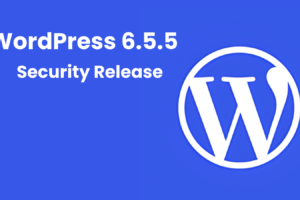
The Imperative Need for Security Audits: Safeguarding Every Website Against Cyber Threats
In today’s digitally interconnected landscape, the necessity of conducting regular security audits for every website cannot be overstated. A security audit serves as a proactive and comprehensive examination of a website’s infrastructure, code, and overall cybersecurity measures. Here are compelling reasons why such audits are essential:
Identifying Vulnerabilities: Security audits are crucial for identifying potential vulnerabilities in a website’s architecture. By conducting thorough assessments, businesses can discover and address weaknesses that could be exploited by cybercriminals.
Preventing Data Breaches: Websites often handle sensitive user data, making them attractive targets for cyber attacks. Security audits help in implementing robust measures to prevent data breaches, protecting both the website owner and its users from the devastating consequences of unauthorized access.
Ensuring Regulatory Compliance: Many industries have stringent regulations regarding the protection of user data. Security audits assist website owners in ensuring compliance with these regulations, avoiding legal consequences and reputational damage.
Maintaining Business Continuity: Cybersecurity incidents, if left unchecked, can lead to downtime and operational disruptions. Regular security audits contribute to the development of effective contingency plans, ensuring that the website can quickly recover from any potential cyber threats.
Protecting User Trust: Users expect their personal information to be handled with the utmost care. Security audits demonstrate a commitment to user privacy and security, fostering trust and confidence among website visitors.
Adapting to Evolving Threats: Cyber threats are constantly evolving, and new vulnerabilities emerge regularly. Security audits help websites stay ahead of the curve by adapting their security measures to counteract the latest tactics employed by malicious actors.
Identifying Outdated Software: Outdated software and plugins are common entry points for cybercriminals. Security audits highlight any outdated components and recommend updates, reducing the risk of exploitation through known vulnerabilities.
Enhancing Incident Response Preparedness: In the event of a security incident, having a well-prepared incident response plan is crucial. Security audits help organizations identify gaps in their incident response capabilities and refine their strategies for handling potential breaches effectively.
Protecting Business Reputation: A security breach can tarnish a website’s reputation, leading to loss of credibility and customer trust. Security audits play a preventive role, helping to avoid security incidents that could harm the overall image of the website and the associated brand.
Demonstrating Due Diligence: Conducting regular security audits showcases an organization’s commitment to cybersecurity and due diligence. This proactive approach is vital in an era where cyber threats are becoming more sophisticated and prevalent.
In conclusion, a security audit is not just a precautionary measure; it is a fundamental aspect of responsible and secure web management. Websites that prioritize regular security audits are better equipped to navigate the ever-changing landscape of cyber threats, safeguard user data, and maintain a resilient and trustworthy online presence.



